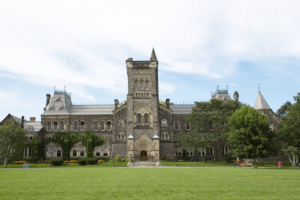If you have been searching for how to become a pilot in Canada, then you are on the right page. This blog will outline the eligibility criteria, medical requirements, skillset, job prospects and salary packages.
Furthermore, those individuals who have a knack for flying can choose to become a pilot in Canada. This country has renowned pilot training schools equipped with modern air traffic control systems.
Besides, the Canadian Aviation License is one of the most prestigious licenses. The tuition fees clubbed with the quality of education makes it a perfect destination for international students. Underlined below are the eligibility criteria and qualifications:
Eligibility Criteria and Qualifications
Pilots will be eligible to earn the Post-Graduation Work Permit upon completion of their flight training. However, they must fulfil some eligibility criteria, which are:
- Candidates must be 17 years of age.
- Candidates have to fulfil educational requirements as well. It can be either a college diploma or a University degree.
- Moreover, they must be able to fulfil English language requirements. Either candidate can choose to appear for IELTS or TOEFEL. If candidates appear for IELTS, they must achieve an overall band score of 6.5. On the other hand, for TOEFEL, candidates must score 65 in each category.
- For the Pearsons Test of English, a score of 53 is required in each section.
- In addition, candidates must have completed 2000 hours of flying time.
Check Your Eligibility for 80+ Universities across Canada
Book a free counselling session and find universities where you can get an Admission!

Check Your Eligibility for 80+ Universities across Canada

Book a free counselling session and find universities where you can get an Admission!
Medical Requirements
Candidates will have to clear out medical examinations such as eyesight, coordination, hearing and overall health.
They must have been able to clear the Air Canada and Transport medical and visual acuity requirements and attain a Category 1 medical certificate. This is applicable for Commercial Pilot License. In addition, it must reflect in their resume that they have commercial or military flight experience.
Moreover, if a candidate is under 40 years of age, they must own a Category 3 Medical certificate every five years. On the other hand, if one is older than 40 years, he\she must have a Category 3 Medical certificate. One must remember that this applies to those candidates who wish to opt for Private Pilot License.
However, it is best to apply beforehand, as the procedure takes 40 business days. Moreover, due to the COVID-19 pandemic, some alterations have been brought by the Government of Canada. Furthermore, those who hold a Category 3 and 4 certificate must also appear for the written examination.
Necessary Skills
Any dream to be fulfilled requires hard work, resilience, determination and skills. The essential abilities one needs in this field are:
- Knowledge of Transportation
- Using Specialized Equipment
- Repair and operate mobile equipment
- Instruct and teach
- Management, supervising, analysis, communication
- Must possess knowledge of Law and Public Policy, Social Sciences and Art, Engineering and Technology.
Generally, those who pursue this profession must also develop this skillset:
- Candidates must be able to make in-flight repairs and follow emergency procedures.
- They must also perform flight inspections and record if any malfunctions occur.
- Candidates are required to operate the aircraft and engine systems during the flight.
- Sometimes, they must train pilots to be eligible for additional certificates.
- They must check passenger and cargo distribution to fulfil weight and balance specifications.
- They must communicate with the weather forecasters, ground crews and air traffic.
- Candidates must be able to test new aircraft and evaluate their performance. Furthermore, they must train other pilots for their evaluation.
Tips to Handle Lifestyle and Stand Out from the Rest
One must be wary that one needs to undergo hours of training and coursework. Moreover, if training to be a commercial pilot, one must also enrol in type rating courses.
However, this may be overwhelming for many regarding physical and mental well-being. But, most importantly, to succeed in this endeavour, one must be determined to achieve the target. One can follow these tips:
- Eat well
One must follow healthy eating habits. Although one’s schedule will be busy and cooking everyday homemade food is impossible, one can carry fresh fruit or pack vegetables that can be carried as a snack. However, it is best to choose those low in sugar meals.
- Get rest
One needs to get adequate sleep as well. This will help boost one’s immune system and help relieve stress.
- Walk the aisle to prevent DVT
Pilots may experience deep vein thrombosis after sitting on the flight for long hours. In this medical condition, multiple clots may form in the vein of the legs. This can be prevented by walking down the aisle for two or three hours. Furthermore, the Aerospace Medical Association recommends that pilots exercise.
- Drink enough water
Pilots must learn to keep themselves hydrated during long hours of flight. Dr P. Dara recommends that pilots consume five glasses of water before and after a flight.
- Choose warm clothes
It is best to carry warm clothing during flights as hypothermia may occur due to the cold temperature.
Job Prospects of Becoming a Pilot in Canada
In the Canadian job market, the demand for pilots has increased. As per the 2020- 2029 CAE Pilot Demand, the civil aviation industry will require more than 26,000 pilots in the upcoming decade. Besides, these are the respectable job roles of a pilot that one can look at:
- Airline test pilot
- Airline pilot instructor
- Business aircraft pilot
- Charter pilot
- Chief Pilot
- Experimental test pilot
- Mapping Pilot
Salary Packages for Pilots in Canada
The salary package can be attuned to the demand for pilots. The pandemic increased this demand. Besides, this industry has also been performing well.
A pilot can earn up to CAS $ 100 418 annually as per Glassdoor. Moreover, their salary can range from $28 854- $517 553 per year. However, one must note that the salary package depends on experience and qualifications.
Furthermore, one must also note that education can influence one’s salary. For example, if one has a Masters’s degree in Aviation, one can earn up to CAD 304 000 annually. This is how to become a pilot in Canada and earn the figures one had dreamt of.
Frequently Asked Questions
1. How much can an inexperienced pilot earn in Canada?
A pilot joining in an entry-level position can earn up to $55,000 annually, whereas an individual with experience may make up to $107 50 per year.
2. Is Canada good for aviation training?
Yes, Canada has renowned pilot training schools and is recognized globally.






